About San Ysidro Health – Mountain Health Family Medicine
San Ysidro Health’s Mountain Health Family Medicine is a place of excellence and compassion in Campo, California. Their staff provides primary care along with substance use disorder services that include comprehensive assessments and outpatient treatment for adults, children, and adolescents.
The nice thing about this facility is that you can access medical care, mental health and substance dependency support under one roof in a truly special setting that respects your needs. We like that their programs are available for both adults and youth with serious emotional disturbances. We also appreciate the efforts they take to make sure you receive thorough evaluations and ongoing care to foster your best chance for sustained wellness.
Local Treatment Options by Age
You can participate in outpatient addiction treatment if you are 18 or older. Children and adolescents with serious emotional disturbances are also served through programs that are tailored for their age and development level. Comprehensive mental health and substance use assessments help guide your care plan.
An Integrated Healthcare Approach
Substance use disorder affects your body, mind and spirit so it’s important to have communication and collaboration between your medical provider and your addiction treatment provider. This is particularly easy here because all of these services are under the same roof so you get an integrated and holistic approach to your recovery.
You can pay with cash, private health insurance, Medicaid or Medicare. A sliding fee scale discount program is available based on family size and income for uninsured or underinsured patients. This ensures you have access to necessary care regardless of your financial situation.
Enjoying the Local Community
After your appointments you can ride a vintage train at the Pacific Southwest Railway Museum in Campo. You can also visit the California Historic Landmark Gaskill Brothers Stone Store Museum for a glimpse into local history. If you need some fresh air, you can spend an afternoon at Lake Morena County Park just a short drive away. Outings like these can be ideal for complementing your recovery journey.
Latest Reviews
Rehab Score
Gallery
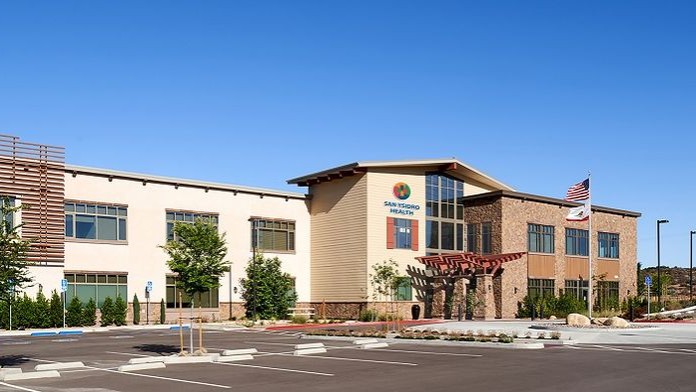
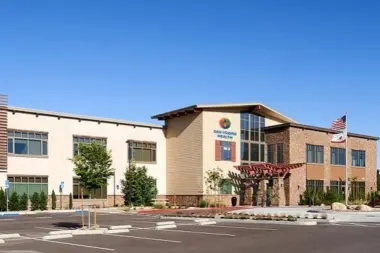
Accepted Insurance

Other Forms of Payment
Self-pay involves paying for treatment out of your own pocket. You can use savings or credit, get a personal loan, or receive help from family and friends to fund your treatment. If you don't have insurance or your insurance plan doesn't cover a specific program, self-pay can help ensure you still get the care you need.
Private insurance refers to any kind of healthcare coverage that isn't from the state or federal government. This includes individual and family plans offered by an employer or purchased from the Insurance Marketplace. Every plan will have different requirements and out of pocket costs so be sure to get the full details before you start treatment.
Financial aid can take many forms. Centers may have grants or scholarships available to clients who meet eligibility requirements. Programs that receive SAMHSA grants may have financial aid available for those who need treatment as well. Grants and scholarships can help you pai for treatment without having to repay.
Addiction Treatments
Levels of Care
Outpatient Programs (OP) are for those seeking mental rehab or drug rehab, but who also stay at home every night. The main difference between outpatient treatment (OP) and intensive outpatient treatment (IOP) lies in the amount of hours the patient spends at the facility. Most of the time an outpatient program is designed for someone who has completed an inpatient stay and is looking to continue their growth in recovery. Outpatient is not meant to be the starting point, it is commonly referred to as aftercare.
Treatments
Mental health rehabs focus on helping individuals recover from mental illnesses like bipolar disorder, clinical depression, anxiety disorders, schizophrenia, and more. Mental health professionals at these facilities are trained to understand and treat mental health issues, both in individual and group settings.
Substance rehabs focus on helping individuals recover from substance abuse, including alcohol and drug addiction (both illegal and prescription drugs). They often include the opportunity to engage in both individual as well as group therapy.
Programs
Adult rehab programs include therapies tailored to each client's specific needs, goals, and recovery progress. They are tailored to the specific challenges adult clients may face, including family and work pressures and commitments. From inpatient and residential treatment to various levels of outpatient services, there are many options available. Some facilities also help adults work through co-occurring conditions, like anxiety, that can accompany addiction.
Young adulthood can be an exciting, yet difficult, time of transition. Individuals in their late teens to mid-20s face unique stressors related to school, jobs, families, and social circles, which can lead to a rise in substance use. Rehab centers with dedicated young adult programs will include activities and amenities that cater to this age group, with an emphasis on specialized counseling, peer socialization, and ongoing aftercare.
Clinical Services
Cognitive Behavioral Therapy (CBT) is a therapy modality that focuses on the relationship between one's thoughts, feelings, and behaviors. It is used to establish and allow for healthy responses to thoughts and feelings (instead of unhealthy responses, like using drugs or alcohol). CBT has been proven effective for recovering addicts of all kinds, and is used to strengthen a patient's own self-awareness and ability to self-regulate. CBT allows individuals to monitor their own emotional state, become more adept at communicating with others, and manage stress without needing to engage in substance abuse.
Whether a marriage or other committed relationship, an intimate partnership is one of the most important aspects of a person's life. Drug and alcohol addiction affects both members of a couple in deep and meaningful ways, as does rehab and recovery. Couples therapy and other couples-focused treatment programs are significant parts of exploring triggers of addiction, as well as learning how to build healthy patterns to support ongoing sobriety.
Experiential therapy is a form of therapy in which clients are encouraged to surface and work through subconscious issues by engaging in real-time experiences. Experiential therapy departs from traditional talk therapy by involving the body, and having clients engage in activities, movements, and physical and emotional expression. This can involve role-play or using props (which can include other people). Experiential therapy can help people process trauma, memories, and emotion quickly, deeply, and in a lasting fashion, leading to substantial and impactful healing.
Research clearly demonstrates that recovery is far more successful and sustainable when loved ones like family members participate in rehab and substance abuse treatment. Genetic factors may be at play when it comes to drug and alcohol addiction, as well as mental health issues. Family dynamics often play a critical role in addiction triggers, and if properly educated, family members can be a strong source of support when it comes to rehabilitation.
Group therapy is any therapeutic work that happens in a group (not one-on-one). There are a number of different group therapy modalities, including support groups, experiential therapy, psycho-education, and more. Group therapy involves treatment as well as processing interaction between group members.
In individual therapy, a patient meets one-on-one with a trained psychologist or counselor. Therapy is a pivotal part of effective substance abuse treatment, as it often covers root causes of addiction, including challenges faced by the patient in their social, family, and work/school life.
Nutrition therapy, aka medical nutrition therapy (MNT), is a way of treating physical, emotional, and medical conditions through diet. Specific dietary plans are designed by professional nutritionists or registered dietitians, and patients follow them in order to positively affect their physical and mental health.
Trauma therapy addresses traumatic incidents from a client's past that are likely affecting their present-day experience. Trauma is often one of the primary triggers and potential causes of addiction, and can stem from child sexual abuse, domestic violence, having a parent with a mental illness, losing one or both parents at a young age, teenage or adult sexual assault, or any number of other factors. The purpose of trauma therapy is to allow a patient to process trauma and move through and past it, with the help of trained and compassionate mental health professionals.
Staff
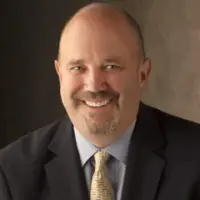
Kevin L. Mattson
President & Chief Executive Officer
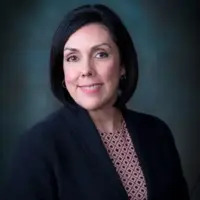
Veronica Dela Rosa, MBA
Executive Vice President of Operations
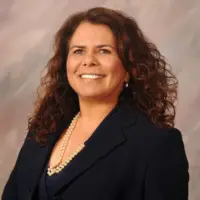
Maria Carriedo-Ceniceros, MD
Vice President & Chief Medical Officer
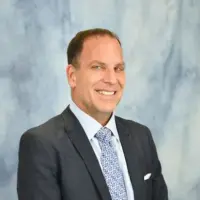
Dan Howard, MBA, PMP, CHCIO
Vice President & Chief Information Officer

Art Mejia, MPA, FACHE
Vice President of Clinic Operations

Ana R. Melgoza, M.P.A.
Vice President of External Affairs

Edward Topps
Vice President & Chief Human Resources Officer
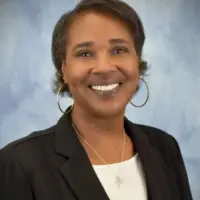
Vernita Todd, MBA, FACHE
Vice President & Chief Strategy Officer
Contact Information
1388 Buckman Springs Rd
Campo, CA 91906